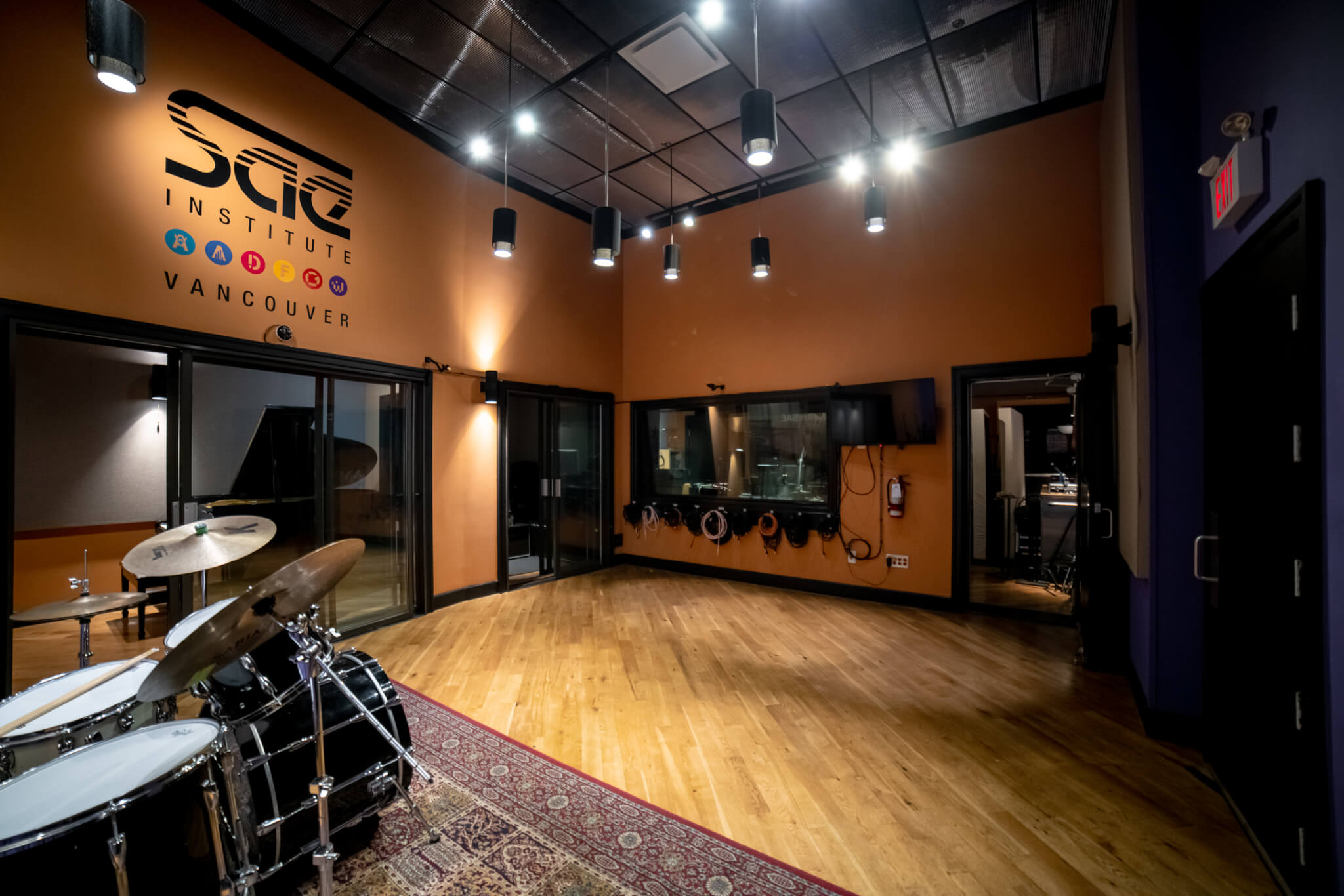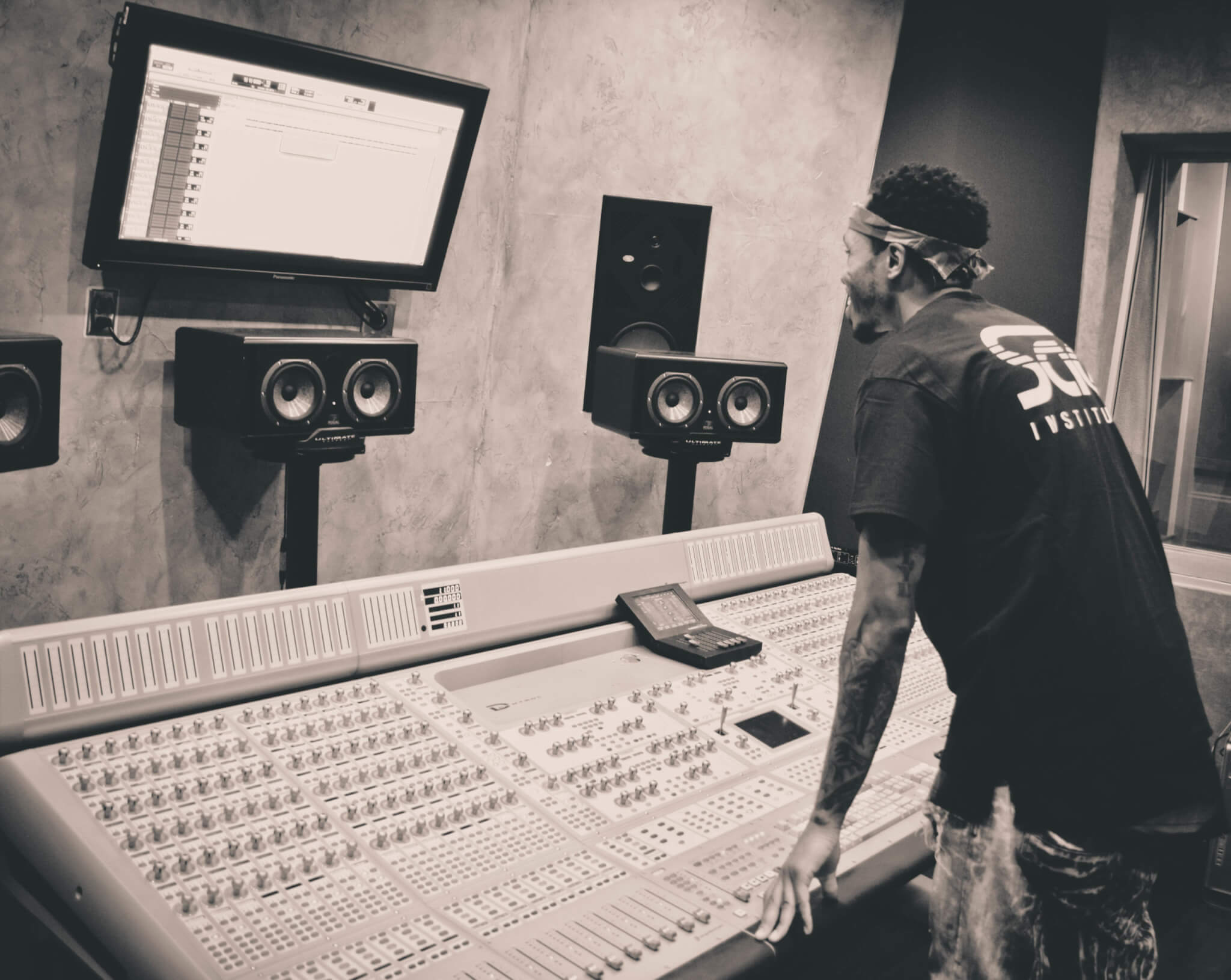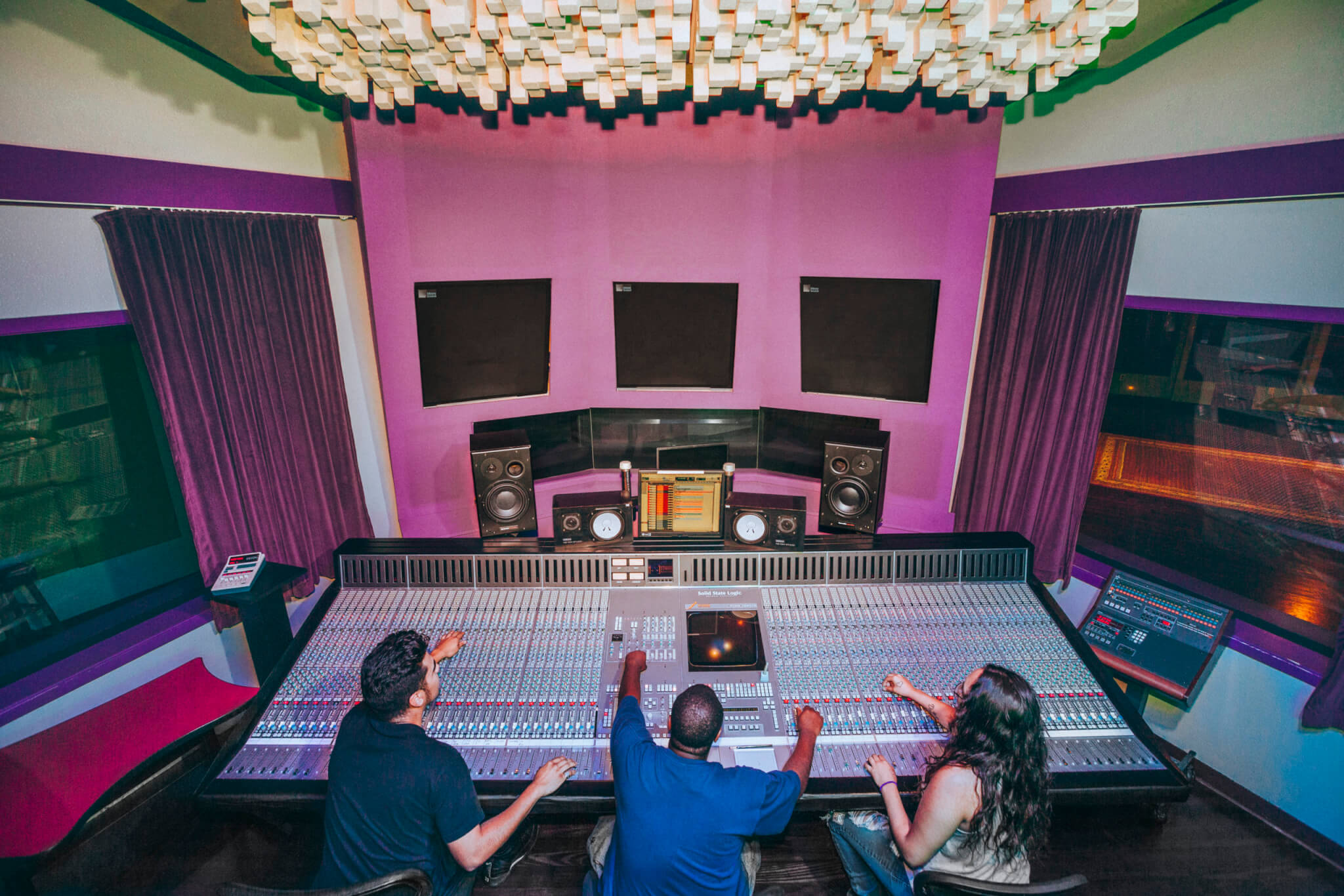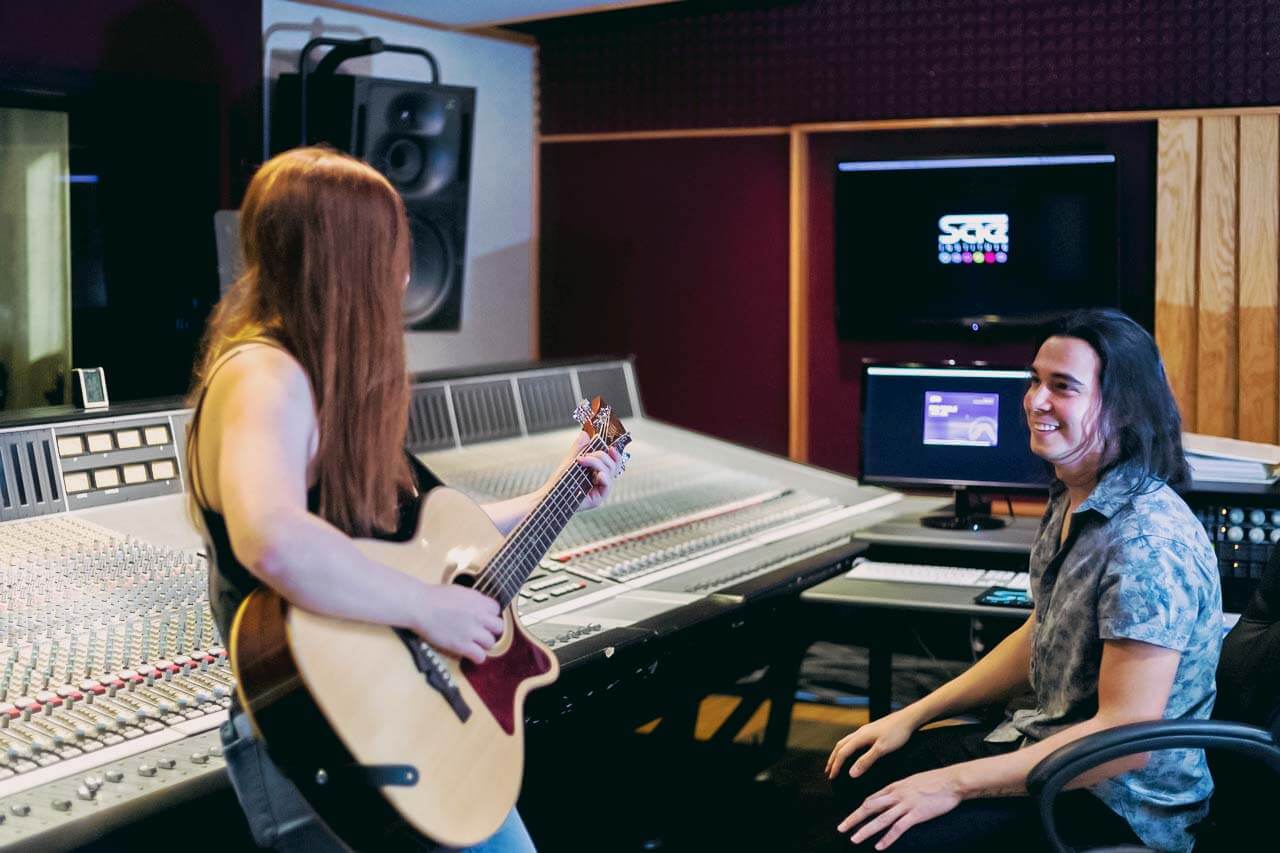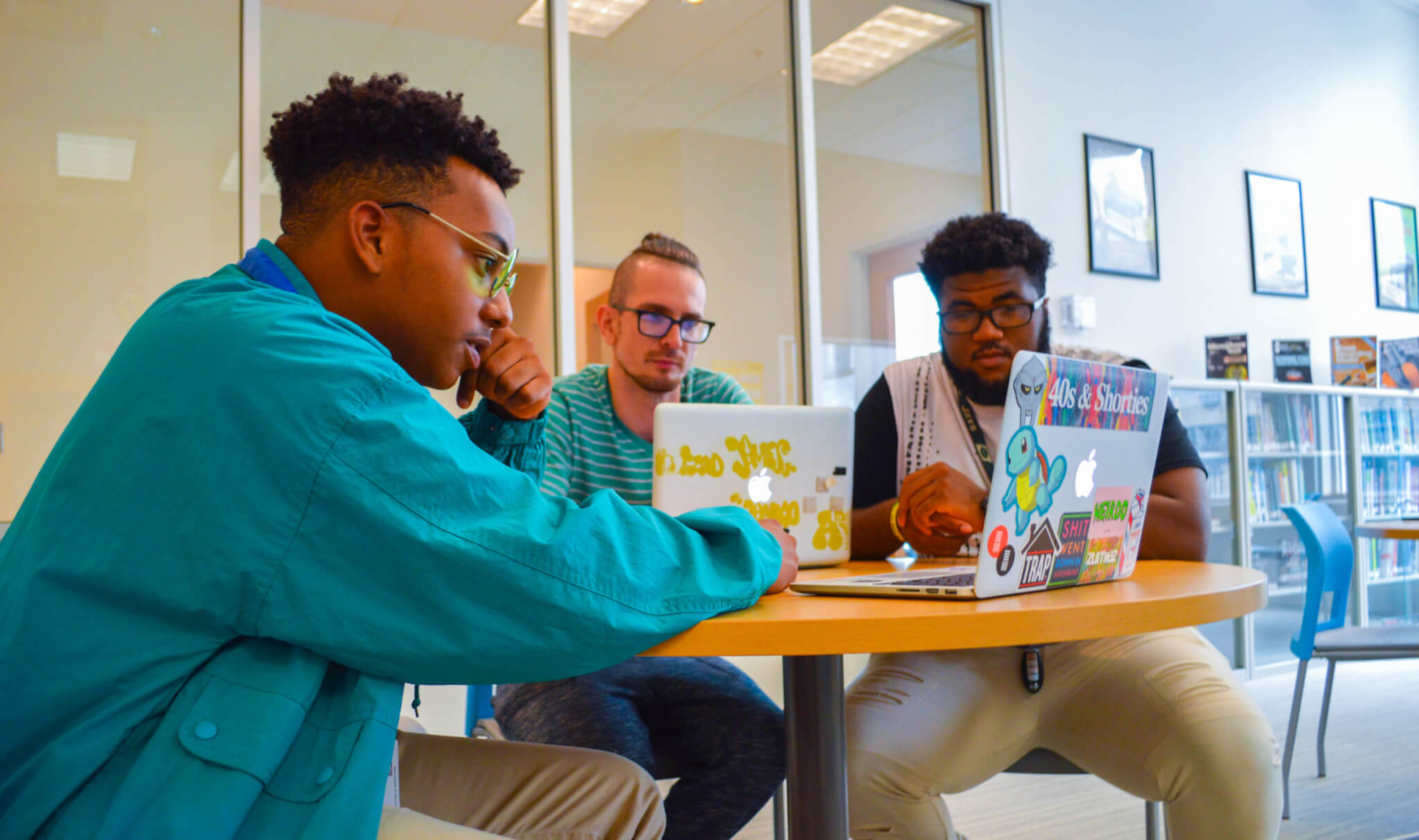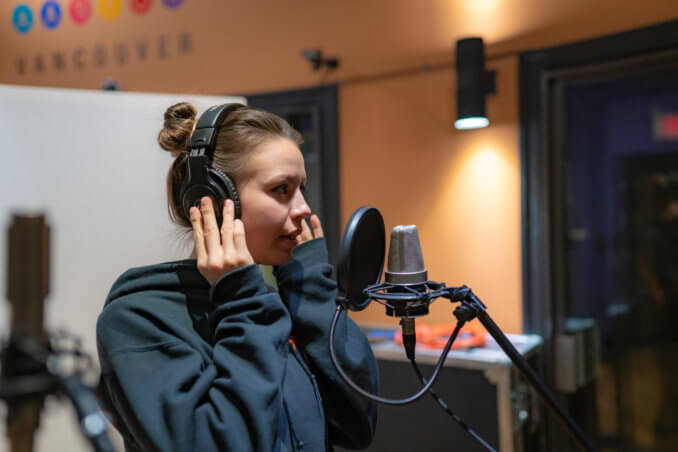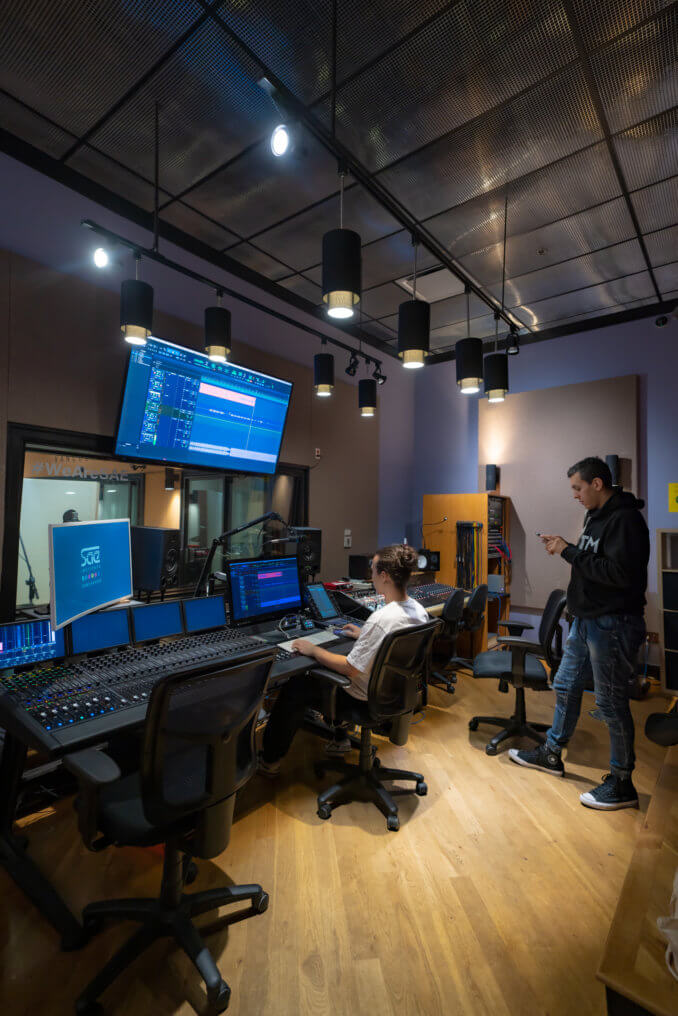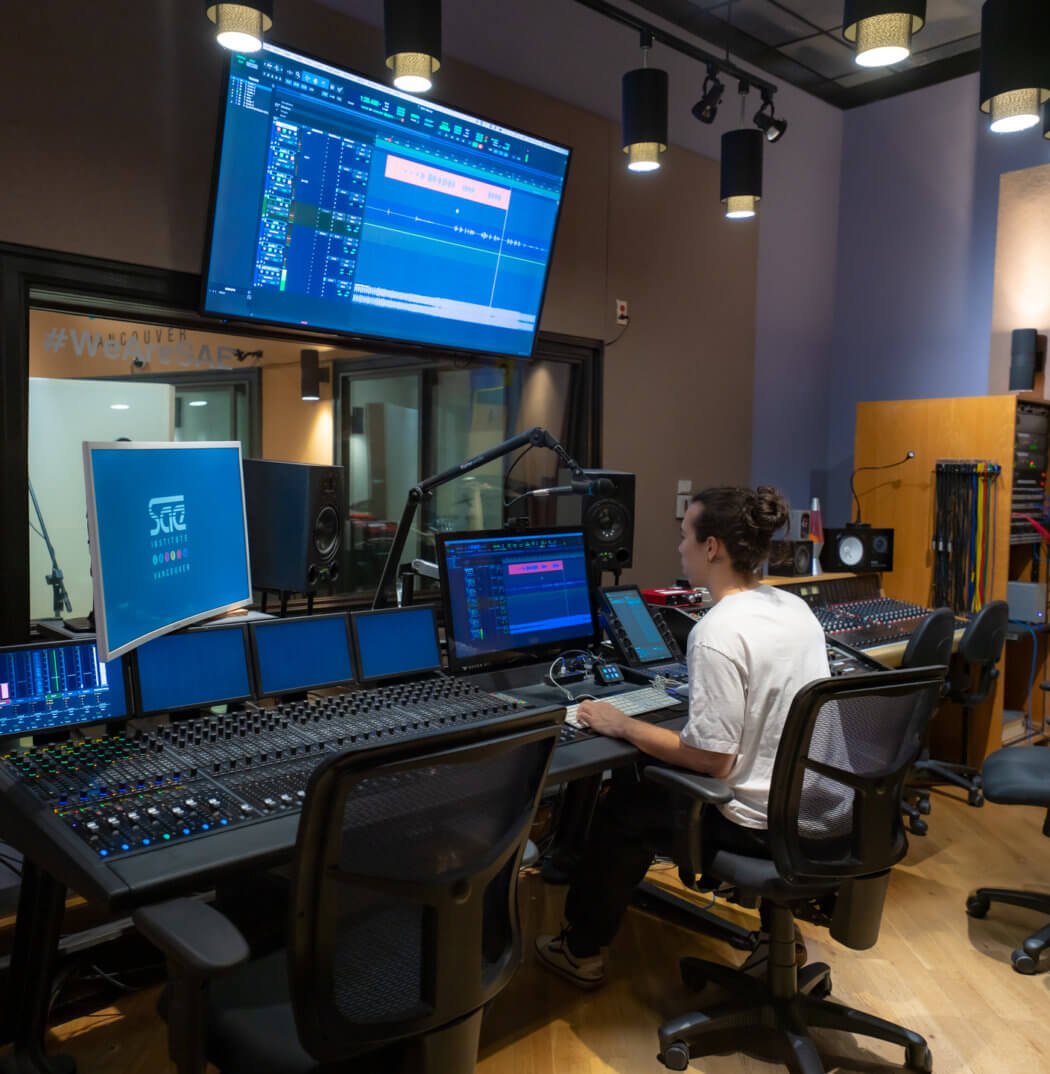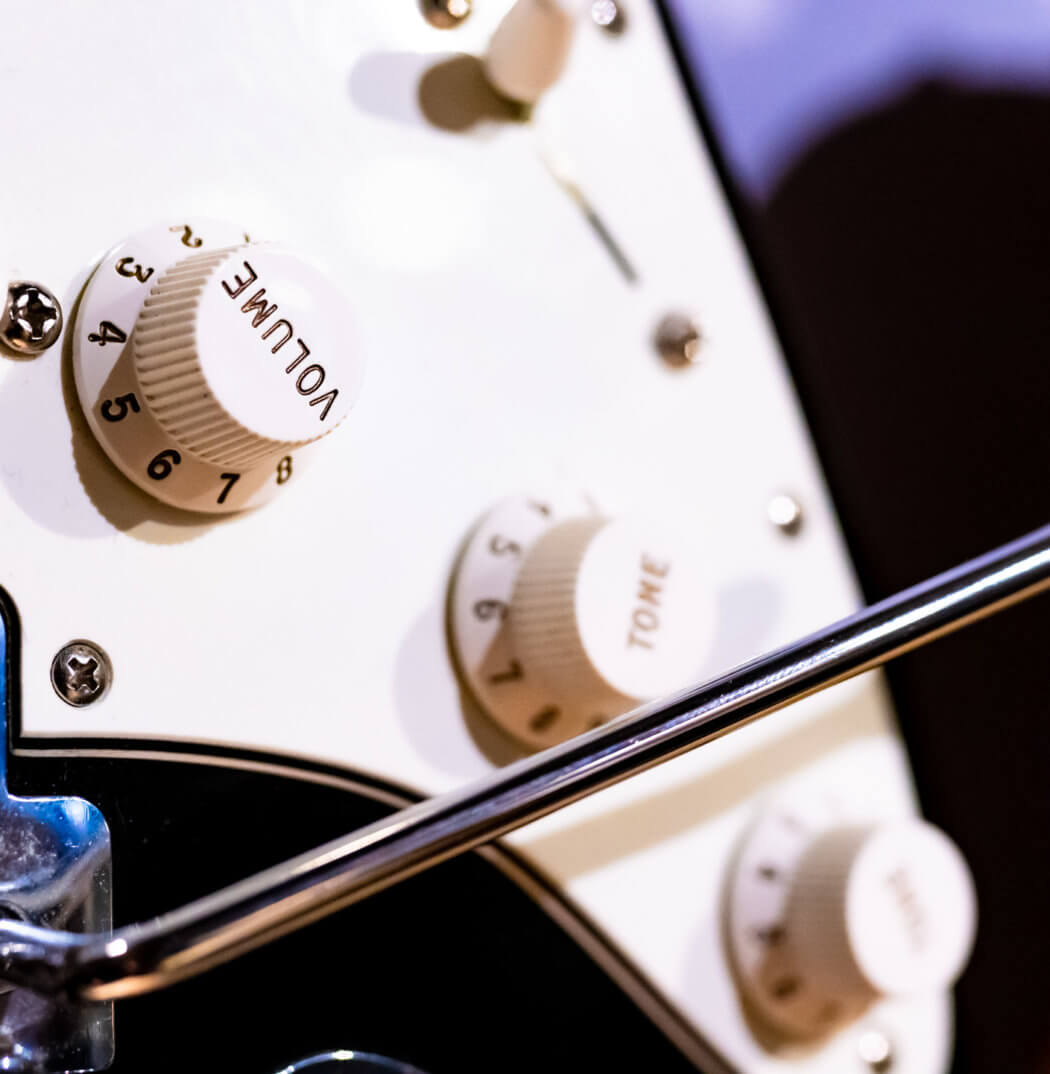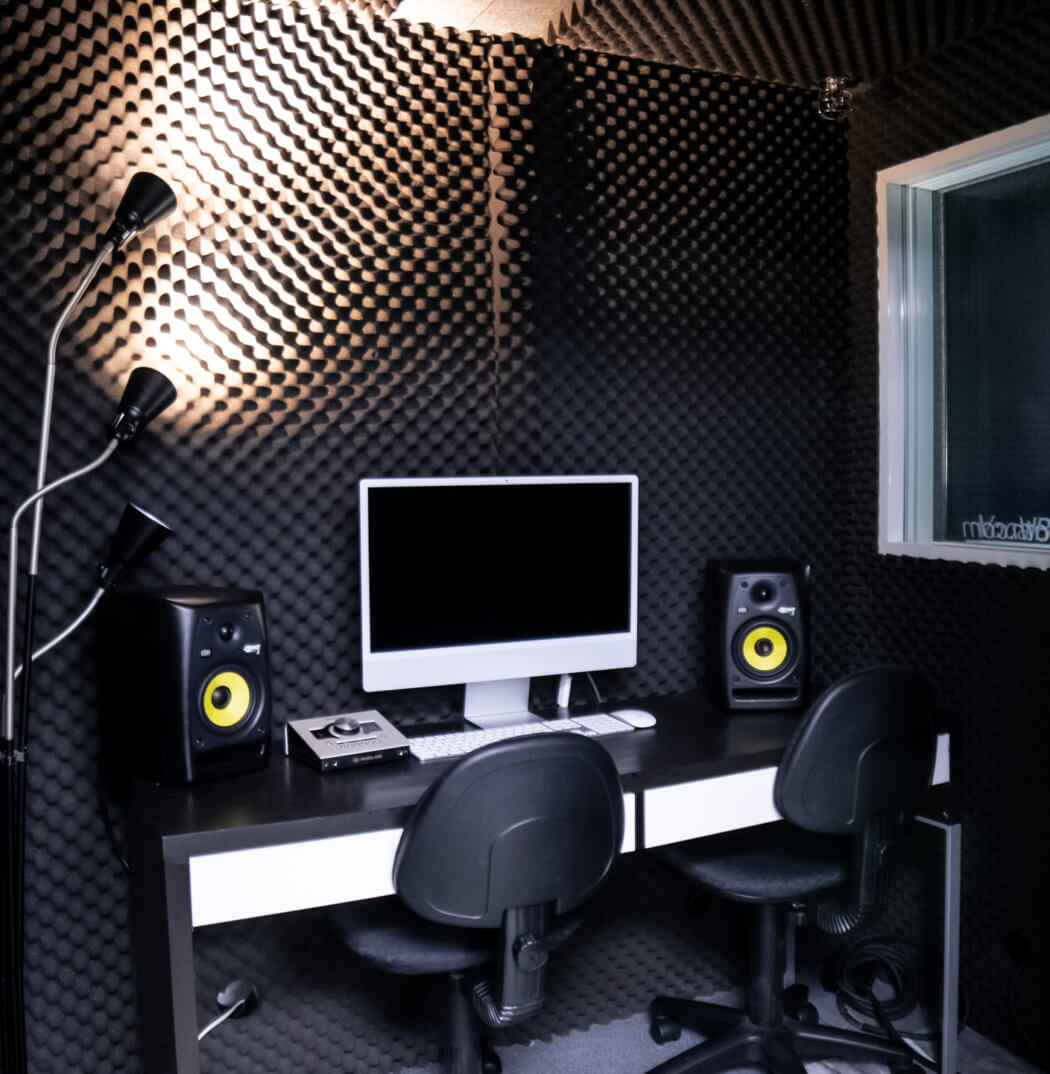Electronic Music Production Diploma
Immerse yourself in Ableton Live's unique workflow and create and produce your own music.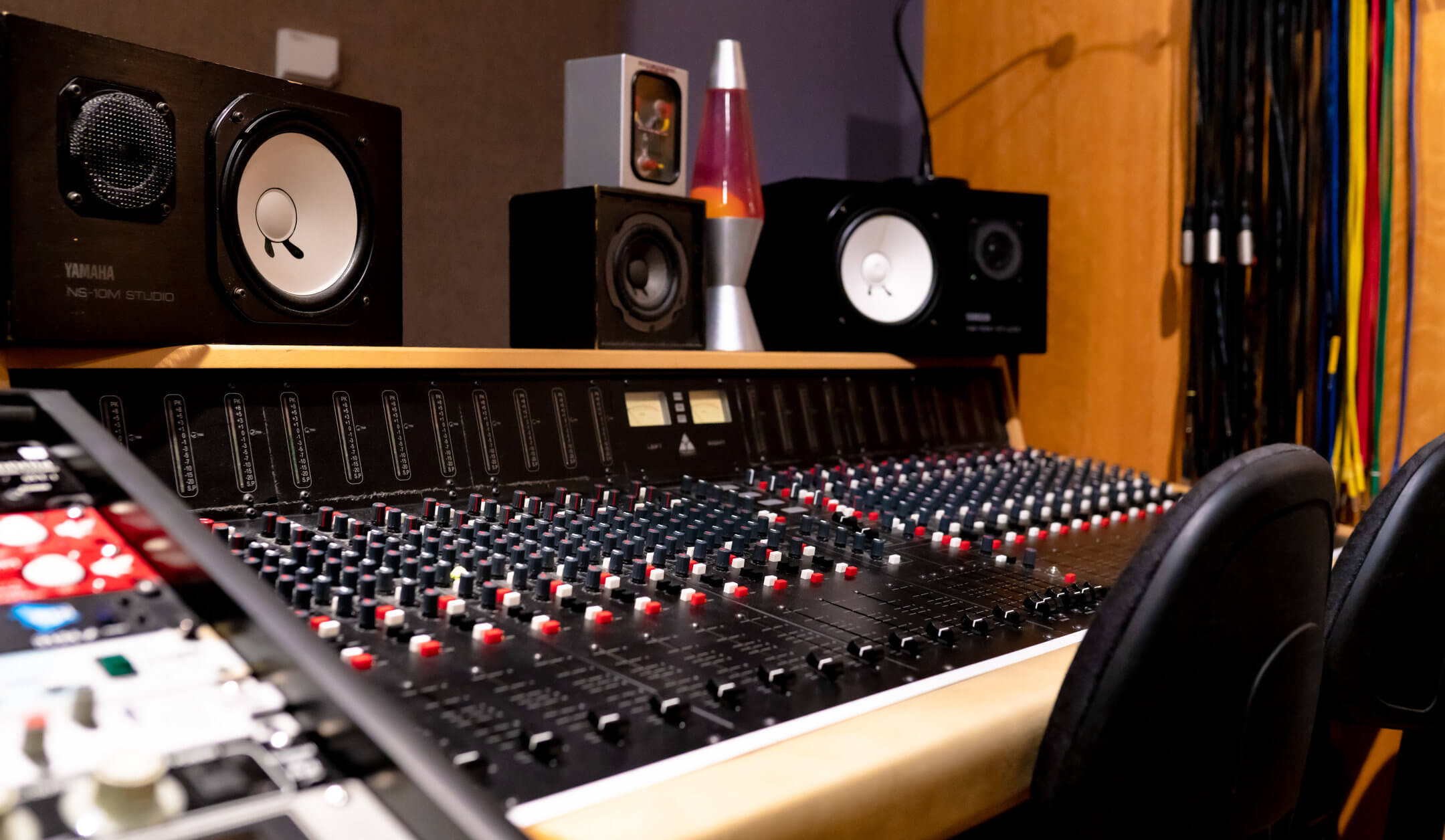
Available at
SAE Institute Vancouver
Fees
Electronic Music Production Diploma
Domestic Fees
Tuition $8,850
Textbooks and materials package $500
Electronic Music Production Diploma
International Fees
Tuition $8,850
Textbooks and materials package $500
Duration(s)
6 months
Electronic Music Production Diploma
Course Durations
6 months
Start Date(s)
SAE Institute Vancouver
TBD
Electronic Music Production Diploma
Start Dates
SAE Institute Vancouver
TBD
Entry Requirements
Electronic Music Production Diploma
Domestic Entry Requirements
Electronic Music Production Diploma
International Entry Requirements
International students must meet the following criteria:
High School diploma, or equivalent, or be at least 19 years of age by the time studies begin, AND
Conduct an interview to assess the applicant's aptitude, level of interest, and basic computer skills, AND
With the exception of applicants from the U.S, UK, and Australasia, International students are required to show proof of English proficiency, AND
YOUR CAREER IN ELECTRONIC MUSIC PRODUCTION BEGINS TODAY
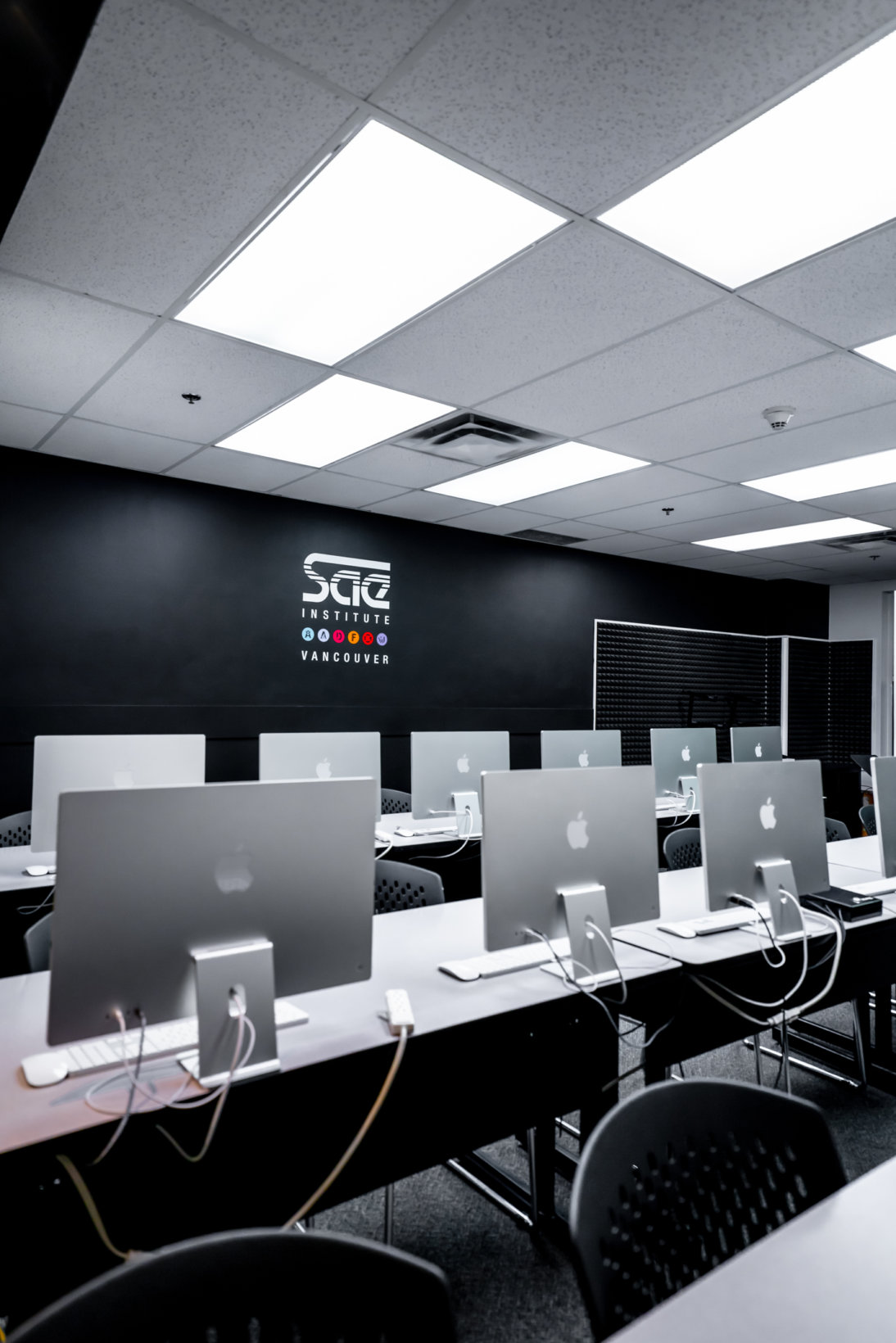
Receive your diploma in only 6 months
The program can be completed in as little as half a year to help you get out of the door faster and launch the career of your dreams.
Develop professional skills to start your career
Study subjects like sales, marketing, and publicity to help you develop your own brand.
Student-centered active education
The Electronic Music Production focuses on learning through practical, hands-on experiences that aim to replicate common professional competencies.
This course covers:
Music Business
Ableton Live 9 Activate
MIDI, Synthesis, & Sound Design
The Art of Mixing & Mastering
Electronic Music Theory
Course Structure
The Electronic Music Production Diploma schedule consists of 4 hours per day, 5 days a week.
Course Structure
This course is taught by our Ableton Certified Instructor and is included in the Audio Engineering and Music Production Program or can be taken separately.
Designed to introduce and immerse a student in Ableton Live’s unique workflow
Overview and Geography of Live 9
A new Approach to Session View and Arrangement View
Clips – Triggering, Looping, Automation Envelopes
Working with Audio – Warping, Quantizing, Cropping
Constructing Formats on the Fly Scenes
Midi – Instruments, Editing, Over-dubbing, Quantizing, Groove Pool
Next Generation Remixing with Live 9’s new “Audio to Midi”
Integrating Controllers – Control Surfaces, Remote, and Key Mapping
Device Racks – Exploring Live’s Audio and Midi Effects
Hot swapping
File Management – Collect all and Save, Track Archiving
Overview and Geography of Live 9
A new Approach to Session View and Arrangement View
Clips – Triggering, Looping, Automation Envelopes
Working with Audio – Warping, Quantizing, Cropping
Constructing Formats on the Fly Scenes
Midi – Instruments, Editing, Over-dubbing, Quantizing, Groove Pool
Next Generation Remixing with Live 9’s new “Audio to Midi”
Integrating Controllers – Control Surfaces, Remote, and Key Mapping
Device Racks – Exploring Live’s Audio and Midi Effects
Hot swapping
File Management – Collect all and Save, Track Archiving
Covers the fundamentals of music theory and explores the unique tools and approaches to making electronic music.
Fundamental Music Theory
Elements of a Song – Foundation, Rhythm, Leads, Fills, and Pads
Drum Programming
Analogue Style Step Sequencing
Chordal Accompaniment
Bass, Melody and Harmonic Interplay
Lead Lines – Writing the Hook
Improvisation
Arpeggiation
Harmonic Templates
Use of Tension & Release
Creating Fills
Arrangement Strategies – Builds, Drops, Breakdowns
Transition Effects – Rises, Builds, Breakdowns
Song Analysis – Learning From the Best
Working with Vocals
Sound Design as a Writing Tool
Fundamental Music Theory
Elements of a Song – Foundation, Rhythm, Leads, Fills, and Pads
Drum Programming
Analogue Style Step Sequencing
Chordal Accompaniment
Bass, Melody and Harmonic Interplay
Lead Lines – Writing the Hook
Improvisation
Arpeggiation
Harmonic Templates
Use of Tension & Release
Creating Fills
Arrangement Strategies – Builds, Drops, Breakdowns
Transition Effects – Rises, Builds, Breakdowns
Song Analysis – Learning From the Best
Working with Vocals
Sound Design as a Writing Tool
“Beyond the preset” From the basics to designing your signature sound with advanced synthesis.
Properties of Sounds
Wave Forms
Filters
Subtractive, FM, Additive, Spectral, Granular, and Physical Modelling Synthesis
Modern Sampling Techniques
Modulation – LFO, Envelopes, Step Sequencers, Automation
Layering Techniques
Hierarchy of Midi Messages
Syncing Outboard Sequencers with Midi
Creative use of Midi Effects
Sending Midi between Apps and Over Wifi
Properties of Sounds
Wave Forms
Filters
Subtractive, FM, Additive, Spectral, Granular, and Physical Modelling Synthesis
Modern Sampling Techniques
Modulation – LFO, Envelopes, Step Sequencers, Automation
Layering Techniques
Hierarchy of Midi Messages
Syncing Outboard Sequencers with Midi
Creative use of Midi Effects
Sending Midi between Apps and Over Wifi
Create your first session
Make your first audio recording
Import media into your session
Make your first MIDI recording
Select and navigate
Apply basic and mixed editing techniques
Finish your work
Create a music hands-on project
Create a post hands-on project
Make your first audio recording
Import media into your session
Make your first MIDI recording
Select and navigate
Apply basic and mixed editing techniques
Finish your work
Create a music hands-on project
Create a post hands-on project
Configure your studio and session
Control Pro Tools using external controllers
Manage session data and media files
Record MIDI and audio, using loop recording and advanced techniques
Work with time scales and virtual instruments
Work with Avid Elastic Audio
Edit and quantize MIDI and audio
Use audio editing and file management techniques
Apply editing techniques such as the use of Beat Detective for Region Looping
Enable, play, view, and edit automation data
Mix using sends, returns, plug-ins, Master Faders, and groups
Control Pro Tools using external controllers
Manage session data and media files
Record MIDI and audio, using loop recording and advanced techniques
Work with time scales and virtual instruments
Work with Avid Elastic Audio
Edit and quantize MIDI and audio
Use audio editing and file management techniques
Apply editing techniques such as the use of Beat Detective for Region Looping
Enable, play, view, and edit automation data
Mix using sends, returns, plug-ins, Master Faders, and groups
Covers the fundamentals of acoustics, studios operations, and recording acoustic sounds live off the floor.
Properties of Sound
Studio Design and Acoustics
Acoustic Treatments
Analogue Gear – Preamps, Processors, Convertors
Signal Flow
Microphone Design and Placement
Working with Phase
Recording Projects – From Live Vocals to a Full Band
Properties of Sound
Studio Design and Acoustics
Acoustic Treatments
Analogue Gear – Preamps, Processors, Convertors
Signal Flow
Microphone Design and Placement
Working with Phase
Recording Projects – From Live Vocals to a Full Band
Exploring the top third-party plugins used by the pros.
Soft Synths – NI’s Massive, FM8, Kontakt, Guitar Rig, Spectrasonics, Rob Papen, Cyclop, and many more...
Audio Manipulation Tools – Waves, UAD, Ozone, Autotune, Sugarbytes, Camel Audio, Ohmicide, Fabfilter, and many more...
Melodyne
Reason
Rewire
Soft Synths – NI’s Massive, FM8, Kontakt, Guitar Rig, Spectrasonics, Rob Papen, Cyclop, and many more...
Audio Manipulation Tools – Waves, UAD, Ozone, Autotune, Sugarbytes, Camel Audio, Ohmicide, Fabfilter, and many more...
Melodyne
Reason
Rewire
A detailed look at the advanced application of Live 9.
Extracting Grooves
Tempo and Time Signature Changes
Chain Selectors
The Magic Knob – Designing Elaborate effects chains
Designing Drum Racks
Follow Actions
Extreme Warping
Patch Changes in Session view with Chain Selectors and Envelopes
Advanced Sidechain
Mid / Side Processing
Parallel Processing
Frequency Splitting with Audio Effect Racks
Resampling
Remixing
Push Lab
Extracting Grooves
Tempo and Time Signature Changes
Chain Selectors
The Magic Knob – Designing Elaborate effects chains
Designing Drum Racks
Follow Actions
Extreme Warping
Patch Changes in Session view with Chain Selectors and Envelopes
Advanced Sidechain
Mid / Side Processing
Parallel Processing
Frequency Splitting with Audio Effect Racks
Resampling
Remixing
Push Lab
A well-composed arranged and produced track is nothing without a good mixdown and master. This module guides a student through this often misunderstood and yet crucial component of the production process.
Sample Rate & Bit Depth
Monitoring Setups
Tall Deep and Wide – The X,Y, Z of the Sound Stage
Controlling Dynamics – Compression and Expansion
Time-Based Effects – Delays, Reverbs, Chorus, Flanger, etc...
Imaging and Panorama
Gain Staging – Keeping Proper Levels
Focus Mixing – Detailed Automation Approach
Level Metering and Spectrum Analysis
Making your Mix Loud
Standard Mastering Chains
Delivery – File Types, Stems
CD (Redbook, PQ Coding, ISRC)
Sample Rate & Bit Depth
Monitoring Setups
Tall Deep and Wide – The X,Y, Z of the Sound Stage
Controlling Dynamics – Compression and Expansion
Time-Based Effects – Delays, Reverbs, Chorus, Flanger, etc...
Imaging and Panorama
Gain Staging – Keeping Proper Levels
Focus Mixing – Detailed Automation Approach
Level Metering and Spectrum Analysis
Making your Mix Loud
Standard Mastering Chains
Delivery – File Types, Stems
CD (Redbook, PQ Coding, ISRC)
Bring your set to the stage.
System Optimization
Integrating Controllers
Performance effects
Performance Templates
DJing with Serato
Harmonic Mixing
Live Mixing Consoles
DJ Mixers
PA Design
Following and Leading the Audience
Live Recording
System Optimization
Integrating Controllers
Performance effects
Performance Templates
DJing with Serato
Harmonic Mixing
Live Mixing Consoles
DJ Mixers
PA Design
Following and Leading the Audience
Live Recording
The basics of creating and performing live visuals.
Introduction to Visual Performance
Video + Codecs – Frame Rates, Data Rates, I-frames
Animation Basics
VJ Software Overview
Projection-Mapping
Audio, Midi and Other Triggers
Synchronizing Visuals with Ableton
Introduction to Visual Performance
Video + Codecs – Frame Rates, Data Rates, I-frames
Animation Basics
VJ Software Overview
Projection-Mapping
Audio, Midi and Other Triggers
Synchronizing Visuals with Ableton
Gives the student a breakdown of the music industry and lays out the tools needed to gain exposure.
Small Business Planning “Starting Your Own Musician Business”
Goal Setting & Situational Analysis “Entrepreneurship is Essential”
Understanding Music Copyright
Music Publishing 101 “The Flow of Rights & The Flow of Dough”
Resources & Associations “A Helping Hand”
Major Label vs Indie label
Sales, Marketing, Publicity & Promotion “Developing an Integrated Marketing Plan”
The 6 Phases of Online Music Marketing
Marketing With Data “Using Analytics To Measure Results”
Distribution “Getting Your Music Out There” – Beat Port, iTunes
DIY 101 “Doing It Yourself Best Practices”
Direct To Fan (D2F) Marketing “Managing Your Tribe”
Niche Marketing Techniques “Super Serve Your Customer”
Social Media Marketing “Everything Must Cross-Promote”
Email Marketing 101
20 Things You Must Know About Being Online
Building a Press Kit
The Top 10 Truths of The Business We Call Music
Promoting Your Music To The World of Film & Television
How Artists and Their Managers Will Shape The Future
Small Business Planning “Starting Your Own Musician Business”
Goal Setting & Situational Analysis “Entrepreneurship is Essential”
Understanding Music Copyright
Music Publishing 101 “The Flow of Rights & The Flow of Dough”
Resources & Associations “A Helping Hand”
Major Label vs Indie label
Sales, Marketing, Publicity & Promotion “Developing an Integrated Marketing Plan”
The 6 Phases of Online Music Marketing
Marketing With Data “Using Analytics To Measure Results”
Distribution “Getting Your Music Out There” – Beat Port, iTunes
DIY 101 “Doing It Yourself Best Practices”
Direct To Fan (D2F) Marketing “Managing Your Tribe”
Niche Marketing Techniques “Super Serve Your Customer”
Social Media Marketing “Everything Must Cross-Promote”
Email Marketing 101
20 Things You Must Know About Being Online
Building a Press Kit
The Top 10 Truths of The Business We Call Music
Promoting Your Music To The World of Film & Television
How Artists and Their Managers Will Shape The Future
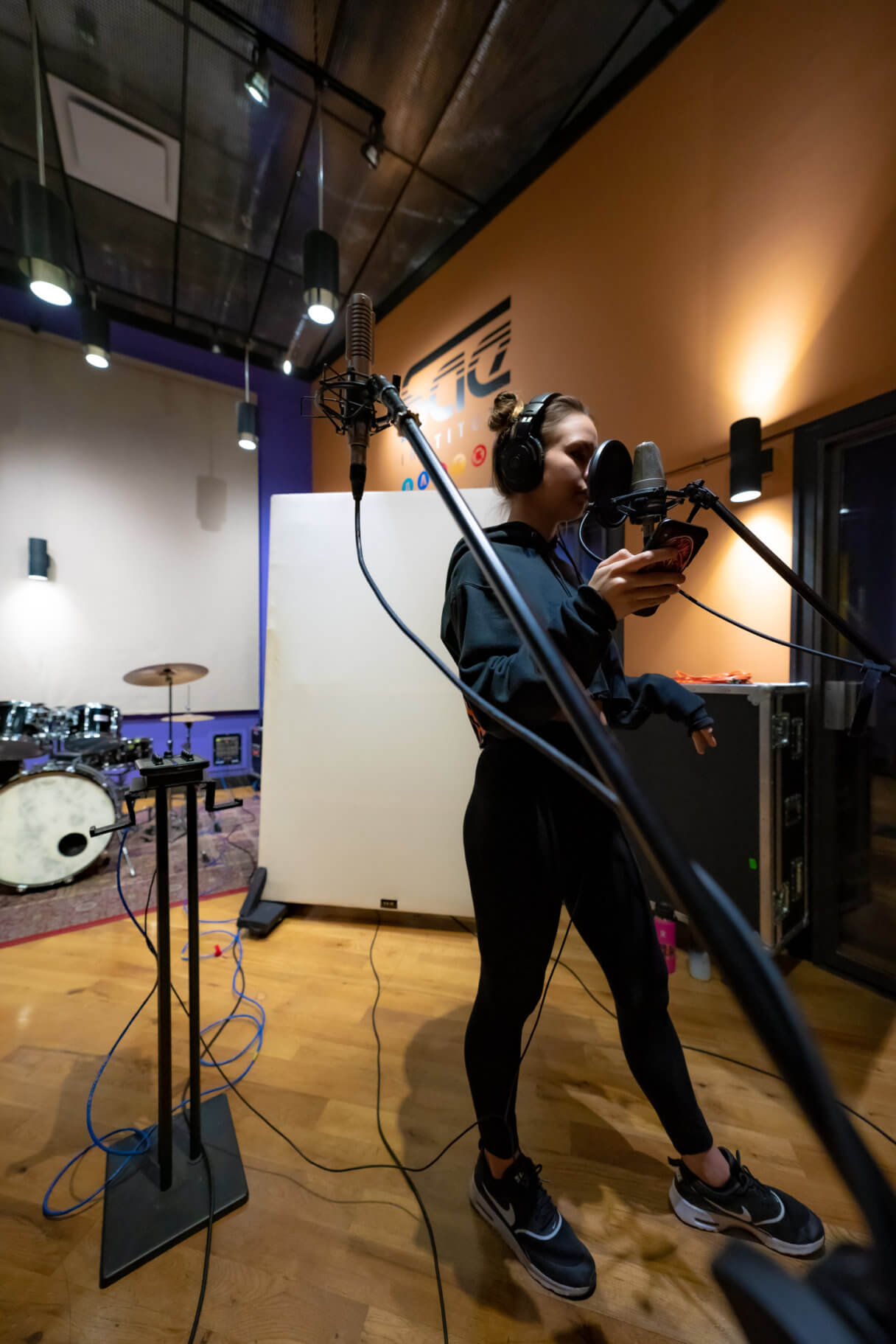
Career Outcomes
After completing the Electronic Music Production Diploma, graduates will be qualified for entry-level opportunities for careers such as:
Recording Artist
Music Producer
DJ
Studio Engineer
Programmer
And more…
